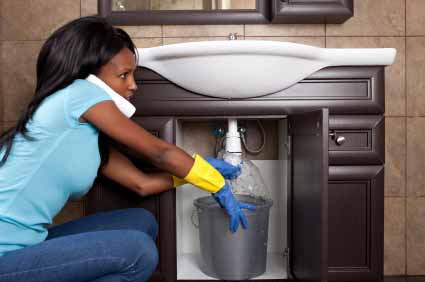Ways to Address the Common Water Heater Emergency Challenges
Ways to Address the Common Water Heater Emergency Challenges
Blog Article
Do you find yourself in search of critical info around Is Your Water Heater Leaking??

A hot water heater is among the most essential fundamental home appliances that can be found in a house. With hot water heater, you do not need to go through the stress and anxiety of heating water by hand every time there is a need to take a bath, do the laundry, or the dishes. There is constantly an opportunity that your water heating system would certainly act up as with the majority of mechanical gadgets.
It is very important to keep in mind any type of little malfunction as well as tackle it quickly prior to things leave hand. Most times, your water heater begins to malfunction when there is a build-up of sediments as a result of continual use. As a safety measure, regular flushing of your hot water heater is advised to prevent debris buildup as well as stop practical failure.
Usual water heater emergency situations as well as how to take care of them
Dripping water heater container.
A leaking storage tank could be a sign of corrosion. It might trigger damages to the flooring, wall surface and also electrical gadgets around it. You might even be at threat of having your home flooded. In this circumstance, you must shut off your hot water heater, enable it to cool off, as well as very carefully search for the source of the trouble. Sometimes, all you need to do is to tighten up a couple of screws or pipe links in cases of small leaks. However if this does not work as well as the leakage continues, you might need to employ the solutions of a technician for an ideal substitute.
Rising and fall water temperature.
Your water heating unit might begin creating water of various temperatures usually ice cold or hot hot. There may be a demand to change either the thermostat or the heating unit of your water heater.
Insufficient warm water
It may be that the water heating unit can't sustain the warm water need for your house. You can update your water heating system to one with a larger capability.
Tarnished or smelly water
When this takes place, you require to recognize if the problem is from the storage tank or the water resource. If there is no funny smell when you run cool water, after that you are particular that it is your water heating system that is malfunctioning. The smelly water can be triggered by rust or the accumulation of germs or debris in the water heater container.
Final thought
Some homeowners disregard little warning and also minor faults in their hot water heater unit. This just results in additional damage and also a feasible complete malfunction of your device. You must deal with your water heater faults as quickly as they come near avoid even more expenses and unneeded emergency problems.
With water heating systems, you don't need to go via the stress and anxiety of home heating water manually every time there is a requirement to take a bathroom, do the laundry, or the meals. Your water heating system might start creating water of various temperatures normally ice cool or scalding hot. It may be that the water heating unit can not support the hot water demand for your home. If there is no amusing smell when you run cold water, then you are certain that it is your water heating system that is defective. The stinky water can be created by rust or the accumulation of germs or sediments in the water heating unit container.
Common Water Heater Issues and What You Should Do
What Type of Water Heater Do You Have?
Before we begin it’s first important that you identify the type of water heater you have on your property. There are two main types of water heaters out there: conventional and high efficiency.
Both of these types of products typically use either gas or electricity to heat power. There are also solar water heaters that use a thermal collector on the roof or yard to heat the water.
While these models are not as common, they can cut heating costs in half. In this article, we will focus on conventional and high efficiency.
How Do My Electric and Gas Water Heater Work?
Though they look similar, electric and gas water heaters work very differently. It’s important to know their basic function because often problems can be specific to the heating source.
In the electric model, a thermostat on the side of the machine detects the temperature of the water in the tank. When the temperature needs to rise electricity flows to a heating element suspended in the water.
Gas models also use a thermostat device — typically with a mercury sensor at the tip and an additional sensor called a thermocouple. The thermocouple detects whether the pilot light is on and controls the flow of gas.
When the thermostat drops below the appropriate level gas is released which becomes ignited by the pilot light. The flame heats the bottom of the water tank which causes hot water to rise and cold water to drop.
This natural circulation continues until the water reaches the desired temperature. Then, the thermostat triggers the gas control valve to shut off the flow of gas.
What Are the Most Common Issues and How Do You Fix Them?
https://happyhiller.com/blog/common-water-heater-issues-and-what-you-should-do/

We hope you enjoyed our article on Warning Signs You Need Water Heater Repairs. Thanks a lot for taking the time to read through our blog post. I beg you take the opportunity to share this blog if you appreciated it. Thank you so much for your time spent reading it.
Best plumbers, one call away. Report this page